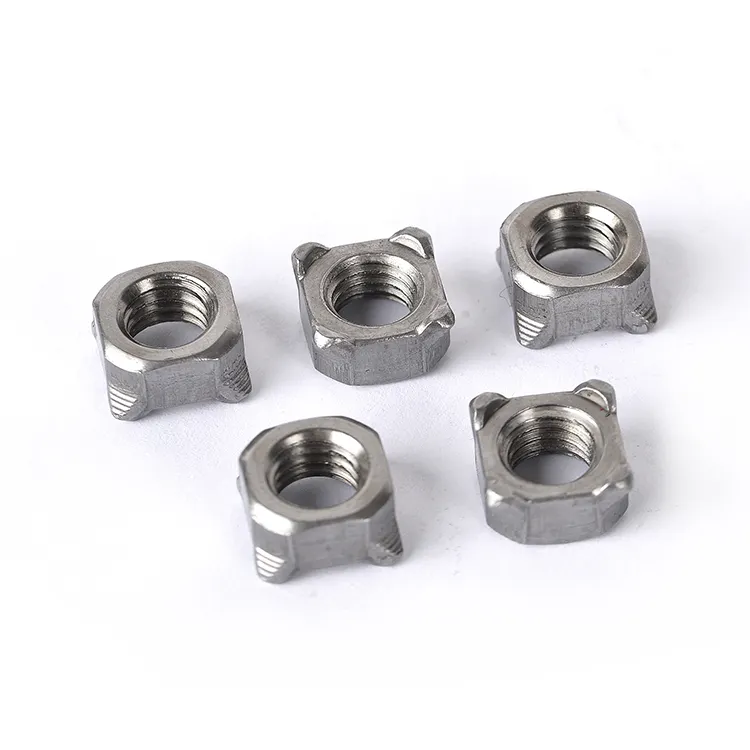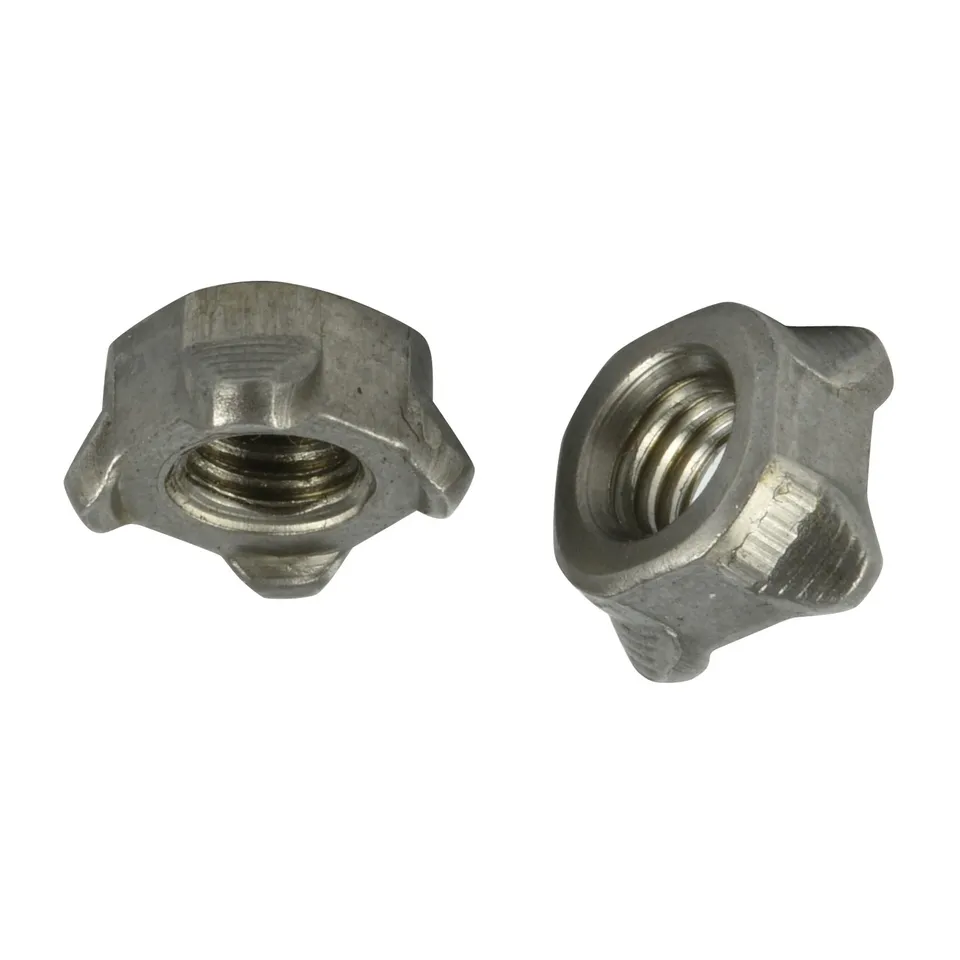Weld Nuts Supplier in China
Ningbo Teng Qi Fasteners Co., Ltd is a weld nuts supplier in China. Weld nuts are specialized fasteners used to create threaded connections on metal surfaces, particularly in applications where it’s not feasible or practical to use traditional threaded nuts. Weld nuts have a specially designed shape that allows them to be welded to a base material, creating a strong and permanent threaded attachment point.
Here’s how weld nuts work:
1. Design: Weld nuts typically have a flanged or tabbed base with a threaded hole. The base provides a surface to be welded onto the parent material.
2. Welding: The weld nut is positioned on the metal surface where the threaded connection is desired. Heat is applied to the base of the weld nut, melting the metal and fusing it to the parent material.
3. Attachment: Once the weld nut cools and solidifies, it forms a secure threaded attachment point on the metal surface.
Weld nuts are commonly used in applications where there is limited access to the back side of the material (such as when attaching a nut to a metal frame), or when you want to avoid the use of tools or extra fasteners. They are often used in the automotive, construction, and manufacturing industries, where a strong and durable threaded connection is needed.


Specification of Weld Nuts:
| Product Name | Weld Nut |
|---|---|
| Diameter | Metric: M4-M24 |
| Class | 4.8/6.8/8.8/10.9/12.9 A2-70 A2-80 A4-70 A4-80 |
| Grade | SAE J429 GR.2/5/8 |
| Material | Steel/Stainless steel |
| Manufacturing Process | wire drawing, cold heading/hot forging, thread rolling, heat treatment, surface treatment |
| Surface treatment | Black Oxide Coating/Zinc Plating (Electroplating)/Hot-Dip Galvanizing/Mechanical Galvanizing/Dacromet Coating/Painting or Powder Coating |
| Application Industry | Construction/Agricultural Machinery/Industrial Structures/Equipment and Machinery/Infrastructure |
Manufacturing quality control of weld nut:
| Control Method | Detail |
|---|---|
| Material Inspection: | Verify the material's composition, heat treatment, and quality upon receipt. Conduct metallurgical analysis to ensure the material properties meet the standards. |
| Process Control: | Implement strict process control measures for heat treatment, machining, threading, and any other manufacturing steps. Maintain consistent process parameters to ensure uniform quality. |
| Inspection Points: | Introduce inspection points at various stages of manufacturing to check for defects, dimensions, and quality. Inspect threading, dimensions, surface finish, and other critical parameters. |
| Sampling and Testing: | Regularly sample products for testing, such as tensile testing, hardness testing, and metallurgical analysis, to ensure they meet the required specifications. |
| Thread Inspection: | Thoroughly inspect threading using proper thread gauges to ensure accurate dimensions and fit with mating components. |
| Traceability: | Implement a traceability system to track each fasteners journey from raw material to final product. This aids in accountability and recalls if necessary. |
